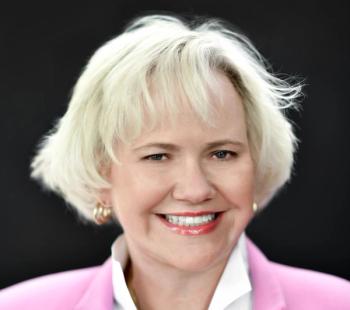
RFK Jr. wants everyone to use wearables, but critics say that won’t fix big problems
Health Secretary Robert F. Kennedy Jr. made headlines with his push for wearables. Critics say the approach is flawed and doesn’t tackle fundamental challenges in health care.
Millions of people use watches and other devices to monitor their health, and Robert F. Kennedy Jr. would like to see all Americans using wearables.
The secretary of Health and Human Services touted the merits of wearable devices at a June 24 hearing of the House Energy & Commerce Health subcommittee.
“We think wearables are a key to the MAHA agenda of making Americans healthy again,” he said.
Arti Masturzo, MD, the chief medical officer of CCS, says the focus on wearables is misplaced, and that’s notable since her company provides patients with continuous glucose monitors and other supplies. She credits Kennedy with thinking of different approaches to prevent disease, but she tells Chief Healthcare Executive® that wearables won’t solve the larger problems hurting the health of Americans.
“We have such stringent criteria for prescribing medications, therapies, procedures,” she says. “And it's astonishing to me that we've made this leap and faith into wearable technology without really having significant data on, how accurate is it? And then, does it really work in the wild? Does having this data actually change behaviors and actually make people healthier? And that's questionable, I think, in the general population.”
Others have expressed similar reservations. Dr. David McManus, chair and professor of medicine at UMass Chan Medical School,
Masturzo also raises questions about the ability to protect personal health information, and even some allies of Kennedy have said they’re not comfortable with the possible exposure of so much data.
Many wearable devices aren’t required to be compliant with the Health Insurance Portability and Accountability Act.
“The thing that I think is the scariest is the privacy issue,” Masturzo says.
But fundamentally, Masturzo says the focus on wearable devices is misplaced, given the bigger challenges in health care in America. (See part of our conversation in this video. The story continues below.)
Needs beyond devices
Wearables won’t solve the bigger problems that make it harder for Americans to get and stay healthy.
Many Americans don’t have easy access to a primary care doctor, or healthy foods, for that matter.
“One of the things that RFK talks about is, well, if everybody knows what their blood glucose is, then they'll be able to make healthier eating decisions,” Masturzo says.
“The obvious thing that folks aren't thinking about is, if you don't have medical coverage, or you don't have access to healthy foods, the point is moot, right? And I would say, when you think about what Americans worry about most, it's the cost of groceries. So to me, it doesn't seem like a wise use of dollars,” she says.
For Masturzo, the push for wearables seems misplaced just as President Trump and Congress passed a sweeping tax package that is projected to
Masturzo also laments the reduction in support for food assistance. The tax package is
“What do you do if you have diabetes and you're insulin dependent, or you have COPD, CHF, and you don't have insurance coverage, and then you don't have a way to pay for food? I just don't understand. It doesn't make sense to me,” she says.
Researchers at The Health TechQuity Lab, a lab at Purdue University, posted
“Framing health as a personal responsibility problem — solvable by monitoring your vitals — assumes that if individuals just had more information, they would make the right choices. But knowledge is not power when people lack the means to act on it,” they wrote.
Fix bigger problems first
Looking at CCS’ patient population, more than 30% say they don’t have easy access to healthy foods, and those are patients with diabetes who are insulin-dependent, Masturzo notes.
“it's just an example of how we often throw medical devices or wearables or technologies, procedures, medications at folks, without really thinking about the root cause and how to really get to the basic fundamental needs of health care, which is really essentially, engagement with a primary care provider or a physician, connection with the human being, access to healthy food, access to transportation,” Masturzo says.
"It's just astonishing to me that we come up with all these expensive, fancy ways to solve a problem when we haven't really addressed the fundamental structural issues in healthcare," she adds.
Many Americans don’t have primary care physicians. Some have to leave their town, or their county, to get to the nearest doctor or clinic.
Given the bigger challenges, when it comes to wearables, Masturzo asks, “Can we stop with the madness?”
“Listen, I have a smart ring,” she says. “I love it. But I'm actually invested in my health care. And I actually use this data to drive behavioral change. We're talking about a general population of folks that are disengaged in their health care, unmotivated, and don't have access to regular primary care. Let's make stuff like that, right? And let's make sure that people have healthy food coverage, they have access to medical care, whether it's drugs or devices that are life-saving first, before we start going to the fancy gadgets and gizmos.”























































































